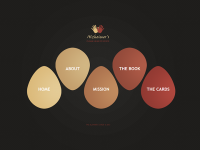What are the Alzheimer’s cards?
The Alzheimer’s card decks are sets of cards designed to be used as a communication device during the middle and late stages of Alzheimer’s disease when verbal/logical speech patterns have deteriorated. The cards are intended, largely for the person with dementia, to provide a voice expressing their needs, feelings, and intentions. Many of the cards can also be used by caregivers to communicate, especially when a normal conversation is not possible. Caregivers of course have needs and feelings too and many times would like to share a message with their companion but cannot.
Why will I want to use them?
As Alzheimer’s disease progresses, many of the normal channels of communication with your friends such as having a conversation or writing a letter will diminish over time until they no longer become a reliable way of sharing your feelings, ideas, or needs. As you can already imagine, this deterioration in everyday communication ability is enormously frustrating especially when you want or need to share what is on your mind with caregivers but cannot. The Alzheimer’s cards offer a new way of communicating that will remain alive and working long after traditional speech becomes problematic.
How will I use the cards?
Detailed instructions are included with the cards and in “the long moment” book. Basically you, the caregiver, will share the cards with your friend or family member and teach them to use the cards to say what is on their mind. Often they will have something to say that cannot be communicated directly in a conversation because of diminished verbal skills. The cards can also be used as an activity to help pass the time. To improve communication, we recommend that you use a regular protocol for working with the cards. Once the process has started you can use them in a game format, a structured format tied to specific communications, a random format or in any other format that works for the specific caregiver and individual with dementia.
Connections that endure over time
very little is known about tools or information that when used in the early stages of the disease provide comfort and aid communication in the later stages. Imagine how helpful it would be if the Alzheimer’s cards or other tools could provide such a link. What if exercises on crucial everyday behaviors could be practiced in the early disease stages and then, aided by the cards, used in the later stages? Perhaps this is a fantasy but we don’t think this is the case. Our goal is to learn enough to develop cards and apps that help make connections which do endure over time.

